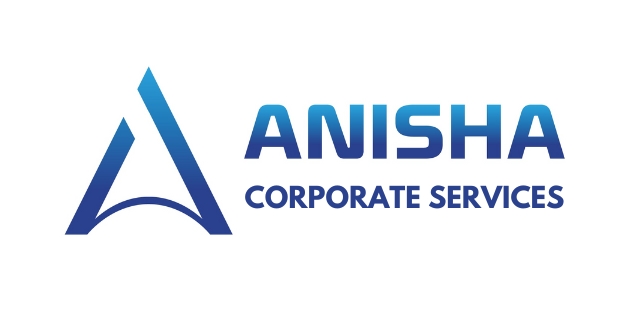Freezone Company Formation in Dubai

Freezone Business Setup
Freezone company formation in the UAE proves very advantageous for businesses by increasing the scope of opportunities and other benefits. UAE has over 50 free zones you can choose from, with different benefits which could make the decision-making process quite complex. There are many factors that must be considered during this process including location, cost, type of business, office space options (flexi-desk or full offices), auditing and bookkeeping necessities, and share capital requirements. With the expertise of industry professionals, you can simplify this process, by receiving step-by-step guidance, cost-effective processes, and a smooth, stress-free formation experience.
Freezone Business Setup
Freezone company formation in the UAE proves very advantageous for businesses by increasing the scope of opportunities and other benefits. UAE has over 50 free zones you can choose from, with different benefits which could make the decision-making process quite complex. There are many factors that must be considered during this process including location, cost, type of business, office space options (flexi-desk or full offices), auditing and bookkeeping necessities, and share capital requirements. With the expertise of industry professionals, you can simplify this process, by receiving step-by-step guidance, cost-effective processes, and a smooth, stress-free formation experience.

List Of Process
List Of Process
1. Determine your Business Activities
- Define the specific activities that your business will be associated with. This choice will heavily influence your Freezone selection the license you will require and whether you would like to operate as a freelancer or a company.
2. Choose Your Business Activities
- Choose a Free Zone company formation that best fits your business needs. It is necessary to consider essential factors like sector specificity, facilities, and location.
3. Choose and Register Your Company Name
- Choose a suitable name for your business that follows the UAE naming regulations and ensure that it is available for registration and does not include sensitive language.
4. Apply for Your License
- Submit your license application to the authorities of your respective Free Zone. These documents generally include shareholder passports, application forms, business plans, board resolutions, and memorandum/articles of association.
5. Obtain Visas
- Obtain Visas for your shareholders, employees, and dependents. This process involves entry permits, medical tests, Emirates ID registration, and visa stamping.
6. Open Your Corporate Bank Account
- Documentation such as business licenses, certificates of incorporation, share certificates, and passports should be prepared. After this process, you can choose a suitable bank based on your service offerings, fees, and minimum balance requirements.
7. Complete Additional Formalities
- Depending on the Free Zone and your business activities, there may be additional requirements such as leasing office space or obtaining specific approvals that must be fulfilled.
8. Manage Ongoing Compliance
- Make sure to comply with UAE regulations for annual renewals, reporting, and sector-specific requirements. Maintain clear records and follow financial and operational guidelines.
9. Bank Account and Visa Applications
- Select a unique trade name that complies with the Department of Economic Development (DED) guidelines and reflects your business activity.
1. Determine your Business Activities
- Define the specific activities that your business will be associated with. This choice will heavily influence your Freezone selection the license you will require and whether you would like to operate as a freelancer or a company.
2. Choose Your Business Activities
- Choose a Free Zone company formation that best fits your business needs. It is necessary to consider essential factors like sector specificity, facilities, and location.
3. Choose and Register Your Company Name
- Choose a suitable name for your business that follows the UAE naming regulations and ensure that it is available for registration and does not include sensitive language.
4. Apply for Your License
- Submit your license application to the authorities of your respective Free Zone. These documents generally include shareholder passports, application forms, business plans, board resolutions, and memorandum/articles of association.
5. Obtain Visas
- Obtain Visas for your shareholders, employees, and dependents. This process involves entry permits, medical tests, Emirates ID registration, and visa stamping.
6. Open Your Corporate Bank Account
- Documentation such as business licenses, certificates of incorporation, share certificates, and passports should be prepared. After this process, you can choose a suitable bank based on your service offerings, fees, and minimum balance requirements.
7. Complete Additional Formalities
- Depending on the Free Zone and your business activities, there may be additional requirements such as leasing office space or obtaining specific approvals that must be fulfilled.
8. Manage Ongoing Compliance
- Make sure to comply with UAE regulations for annual renewals, reporting, and sector-specific requirements. Maintain clear records and follow financial and operational guidelines.
9. Bank Account and Visa Applications
- Select a unique trade name that complies with the Department of Economic Development (DED) guidelines and reflects your business activity.
Why should Free Zone Company Formation be your choice?
- Get 100% ownership of the company by foreign investors
- Gain various types of licenses: Trading, Services, Industrial, and Branch licenses
- 0% corporate tax or income tax
- Have 100% repatriation of capital and profits
- The paperwork required for incorporation is minimal
- Exemption from customs duties
- Simplify the recruitment process for staff
- Free Zones are selected based on sector-specific requirements and offer industry expertise and networking opportunities
- No requirement for a local partner or sponsor
- High-quality infrastructure and competitive operational costs
- A comprehensive selection of available offices and warehousing facilities
Required Documents
- Memorandum of Association (MoA)
- Lease Agreement
- Passport Copies and Visa Status of Shareholders
- Trade Name Reservation Certificate
- Initial Approvals from DED and the Ministry of Economy
Required Documents
- Memorandum of Association (MoA)
- Lease Agreement
- Passport Copies and Visa Status of Shareholders
- Trade Name Reservation Certificate
- Initial Approvals from DED and the Ministry of Economy
FAQs – Corporate Service Provider
A free zone business setup allows companies to operate in designated areas with special tax, customs, and import regulations.
Benefits include 100% foreign ownership, tax exemptions, full repatriation of profits, and streamlined administrative procedures.
Both individuals and corporations from any country can establish a business in a free zone.
Various business types, including trading, services, manufacturing, and consultancy, can be set up in freezones.
The process typically includes selecting a free zone, choosing a business activity, submitting necessary documents, and obtaining licenses.

